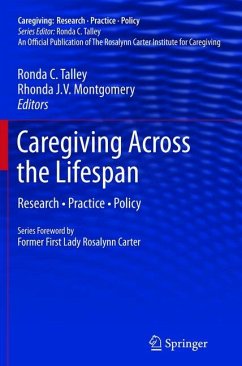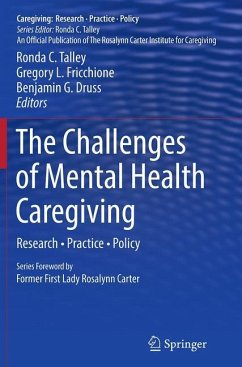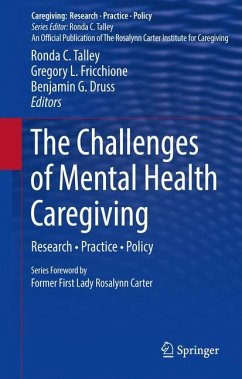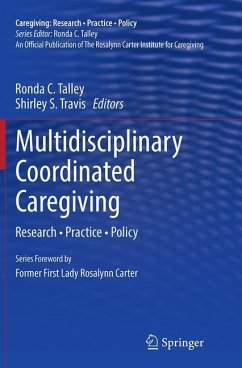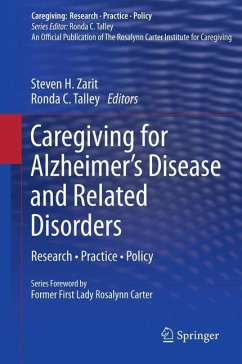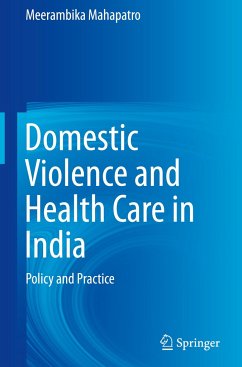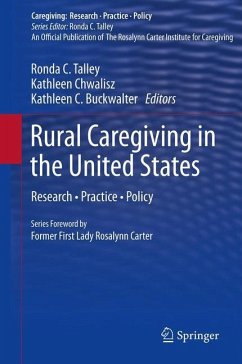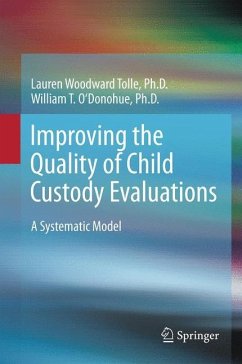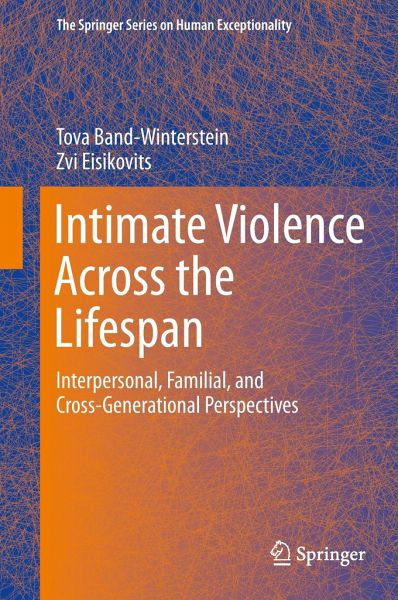
Intimate Violence Across the Lifespan
Interpersonal, Familial, and Cross-Generational Perspectives
Versandkostenfrei!
Versandfertig in 6-10 Tagen
38,99 €
inkl. MwSt.
Weitere Ausgaben:

PAYBACK Punkte
19 °P sammeln!
Evidence pertaining to continual violence throughout the life cycle coupled with the experience of growing old in a life permeated by intimate violence is scarce. And the focus is usually on the victims usually, the older, battered women and seldom on their aging partners or adult children who were part and parcel of the violent dynamics in the family system. With the increase in longevity and the older population's subsequent growth in size, the number of elderly couples living and aging in long-lasting conflictive relationships is on the rise.The relatively intense preoccupation with elder a...
Evidence pertaining to continual violence throughout the life cycle coupled with the experience of growing old in a life permeated by intimate violence is scarce. And the focus is usually on the victims usually, the older, battered women and seldom on their aging partners or adult children who were part and parcel of the violent dynamics in the family system. With the increase in longevity and the older population's subsequent growth in size, the number of elderly couples living and aging in long-lasting conflictive relationships is on the rise.
The relatively intense preoccupation with elder abuse in the gerontological literature in recent years has not specifically addressed long-term intimate violence among the old adults and its lasting consequences. Similarly, the literature on intimate intergenerational relationships in old age has usually focused on normative exchanges between partners and their extended family, including their adult children. Therefore, conflictive relationships, and particularly violent ones, have also fallen outside the scope of this body of research. This volume describes and analyzes the various perspectives of family members concerning life, and particularly old age, in the shadow of long-term intimate violence. It explores how people make sense out of living and aging in violence, how interpersonal, familial and cross-generational relationships are perceived and reconstructed and how "we-ness" is achieved, if at all, in such families.
The relatively intense preoccupation with elder abuse in the gerontological literature in recent years has not specifically addressed long-term intimate violence among the old adults and its lasting consequences. Similarly, the literature on intimate intergenerational relationships in old age has usually focused on normative exchanges between partners and their extended family, including their adult children. Therefore, conflictive relationships, and particularly violent ones, have also fallen outside the scope of this body of research. This volume describes and analyzes the various perspectives of family members concerning life, and particularly old age, in the shadow of long-term intimate violence. It explores how people make sense out of living and aging in violence, how interpersonal, familial and cross-generational relationships are perceived and reconstructed and how "we-ness" is achieved, if at all, in such families.





